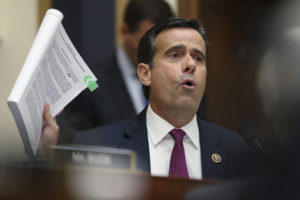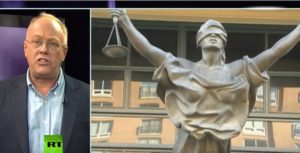A Wish List Against Leaks
The Senate Intelligence Committee this week proposed 12 provisions to the 2013 intelligence authorization bill intended to make what government does at the federal level even more secretive than it already is.
The Senate Intelligence Committee this week proposed 12 provisions to the 2013 intelligence authorization bill intended to make what government does at the federal level even more secretive than it already is.
Among other proposals, the measures would establish formal procedures for the investigation of leaks, prohibit personnel with clearances from serving as paid consultants or commentators for media organizations, and perhaps most threateningly, require that government employees sign an agreement to forfeit their pensions if they disclose classified information without authorization.
In many respects, the proposals “are not a dramatic departure from the status quo,” writes government secrecy researcher Steven Aftergood. Unauthorized disclosures or contacts are already discouraged or prohibited, and the office of the Director of National Intelligence has already set up a program designed to recognize probable and committed leakers.
The provisions would not penalize the publication of leaked information by members of the media or legally limit their ability to receive classified information. But they do confirm a disturbing trend in the government’s attitude toward leaks in general, some of which have proven historically necessary to the exposure of wrongdoing in the executive and legislative branches.
— Posted by Alexander Reed Kelly.
Dig, Root, GrowSteven Aftergood at Secrecy News:
In an earlier generation of intelligence oversight, leaks led to leak investigations in executive agencies, but they also prompted substantive oversight in Congress. When Seymour Hersh and the New York Times famously reported on unlawful domestic surveillance in December 1974, the urgent question in Congress was not how did Hersh find out, or how similar disclosures could be prevented, but what to do about the alarming facts that had been disclosed.
In contrast, while pursuing leaks and leakers, today’s Senate Intelligence Committee has not held an open public hearing for six months. The Committee’s investigative report concerning CIA interrogation practices from ten years (and two presidential terms) ago has still not been issued. Upon publication — perhaps this fall — it will essentially be a historical document.
… As far as the Committee is concerned, the unauthorized disclosure of any classified information — even the substance of a constitutional violation that was recently committed by a US intelligence agency — would constitute a punishable offense, regardless of its public policy significance.
This year, we’re all on shaky ground, and the need for independent journalism has never been greater. A new administration is openly attacking free press — and the stakes couldn’t be higher.
Your support is more than a donation. It helps us dig deeper into hidden truths, root out corruption and misinformation, and grow an informed, resilient community.
Independent journalism like Truthdig doesn't just report the news — it helps cultivate a better future.
Your tax-deductible gift powers fearless reporting and uncompromising analysis. Together, we can protect democracy and expose the stories that must be told.
This spring, stand with our journalists.
Dig. Root. Grow. Cultivate a better future.
Donate today.







You need to be a supporter to comment.
There are currently no responses to this article.
Be the first to respond.